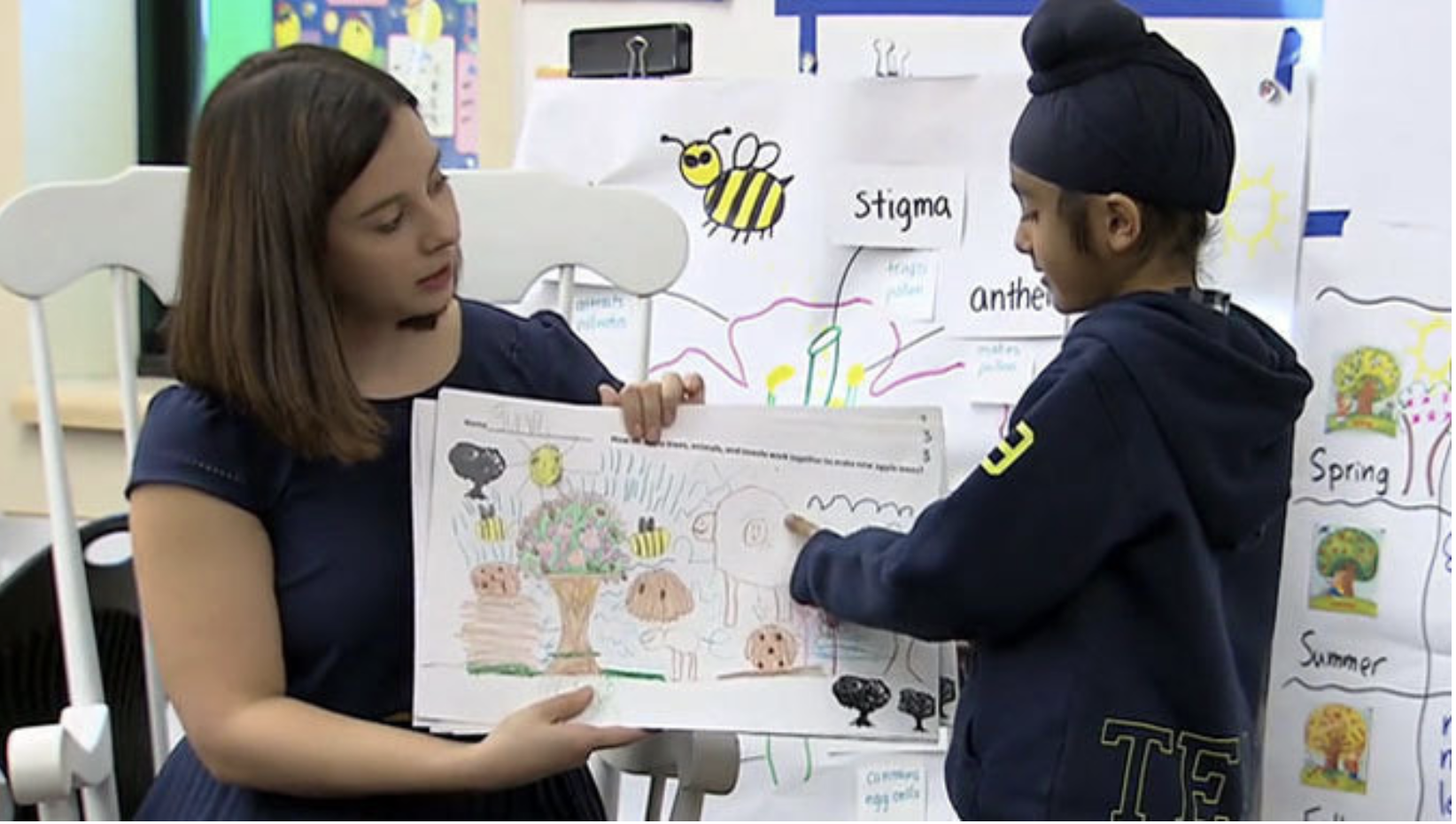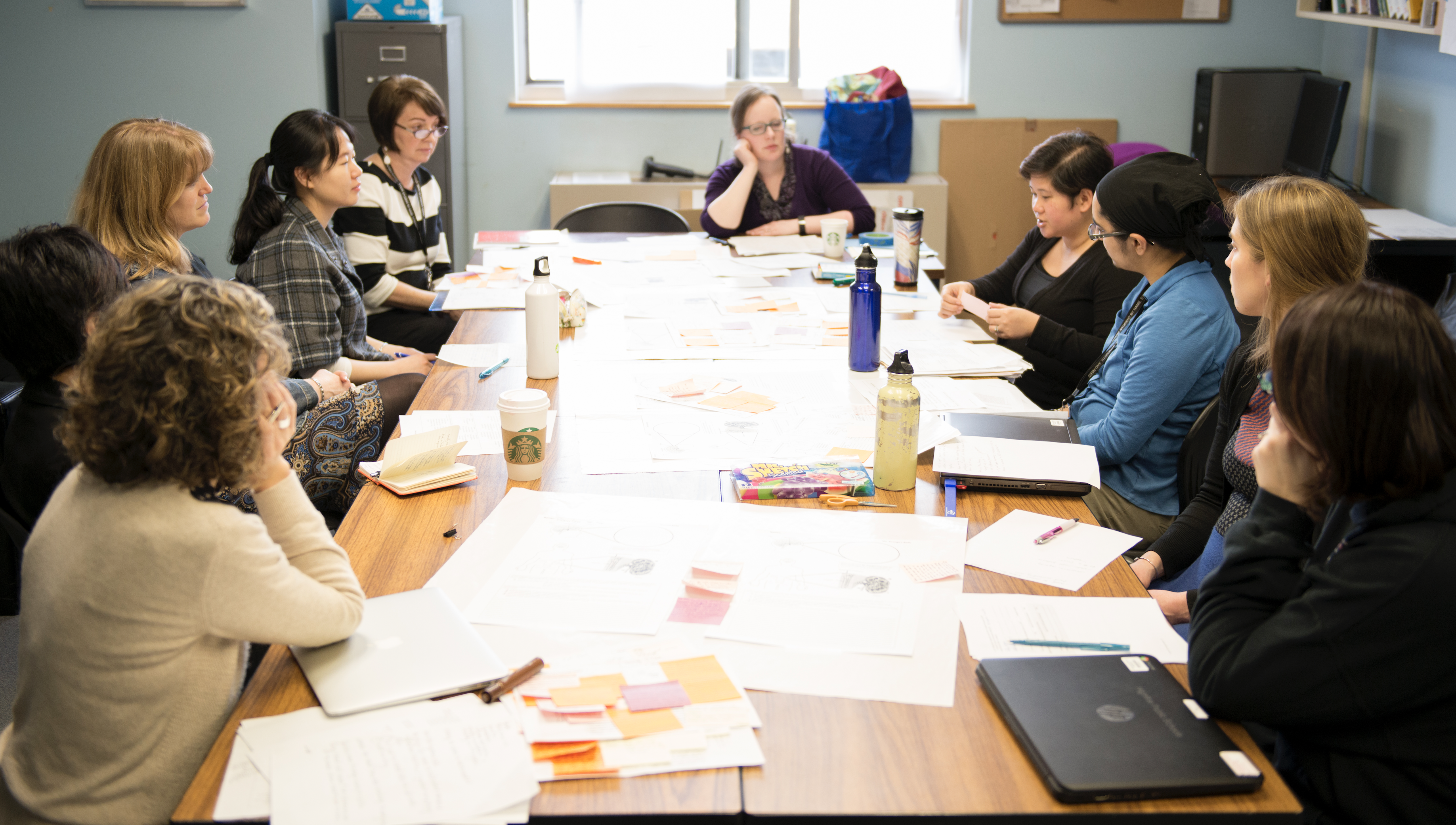
K-12 Teachers
Learn about teaching tools and resources, and see classroom videos.

Teacher Educators
See classroom videos and hear stories of supporting pre-service learning.

Professional Learning
Learn about designing opportunities for in-service learning.
What is Ambitious Science Teaching?
Ambitious teaching can be learned. Ambitious Science Teaching supports students in tackling authentic and meaningful science phenomena with attention to students’ histories, social interactions, and local and global communities. Ambitious teaching requires that teachers develop deep commitments to student learning and a historical understanding of inequity in science and schools. Ambitious teaching takes practice. This website provides resources to develop a vision of ambitious science instruction for today’s complex K-12 classrooms, professional learning, and teacher education.
We are on a journey to better understand justice-centered, ambitious science teaching and learning, and invite you to join us. Working toward justice in science education means interrogating the past and present while envisioning a more just future. Justice-centered teaching spans multiple spheres, including our personal and collective moral and ethical obligations, culturally and linguistically sustaining science teaching practices for a classroom community, and structural and systemic injustice sites extending beyond a single classroom. By working across these spheres, justice-centered teaching aims to revitalize, sustain, and learn from Black, Brown, Indigenous, and People of the Global Majority who have worked to redress harm to society and the environment. We invite you to consider three questions:
- How is science done?
- What counts as science?
- Who gets to do science?
Ambitious Science Teaching
AST offers ideas for working on these questions through a framework with 4 sets of teaching practices. These sets of practices make up the Ambitious Science Teaching Framework. The framework is based on classroom research from the past 30 years. Get started with Ambitious Science Teaching.
Ambitious Teaching—An overview
In this video we illustrate what Ambitious Teaching looks like in classrooms ranging from high school to kindergarten. The practices were developed through collaborations between teachers and researchers, and they are continually evolving as we learn more about how they work with young learners. There are several themes that you’ll see in all examples, such as a focus on puzzling and complex phenomena, opportunities to make sense through talk, making thinking visible, attending to who is participating, using various forms of scaffolding and tools, and much more.
“What Ambitious Science Teaching did was it allowed us to get at why this is this really important — for students, for learning itself, for the community. And then it gave examples of how it’s implemented, which gave folks the knowledge they needed to make it happen in their classrooms and to support their colleagues in fostering growth.”
–SUZANNE SULLIVAN, SCIENCE COACH
Recent AST-related projects
Learn about recent projects funded by the National Science Foundation and the James S. McDonnell Foundation.
K-2 Science & Math Learning Labs
See K-2 AST/Teaching Channel classroom videos.
Developing NGSS Networked Improvement Communities
Learn more about developing partnerships with school districts.
Working Towards Justice-Centered, Multilingual Science and Literacy Pedagogies
Learn more about Promoting Asset-based Science Teaching for Emergent Language Learners.
 This site is primarily funded by the National Science Foundation (NSF) through Award #1907471 and #1315995
This site is primarily funded by the National Science Foundation (NSF) through Award #1907471 and #1315995






